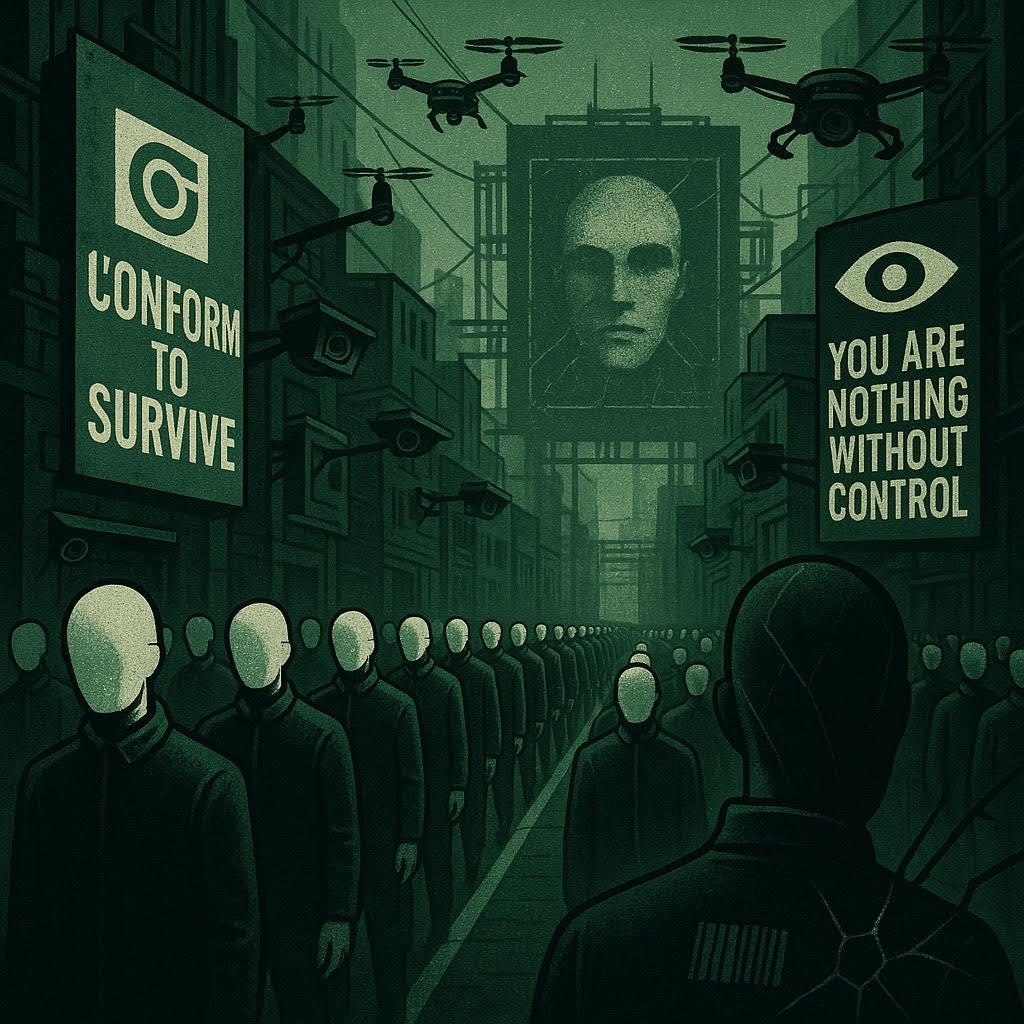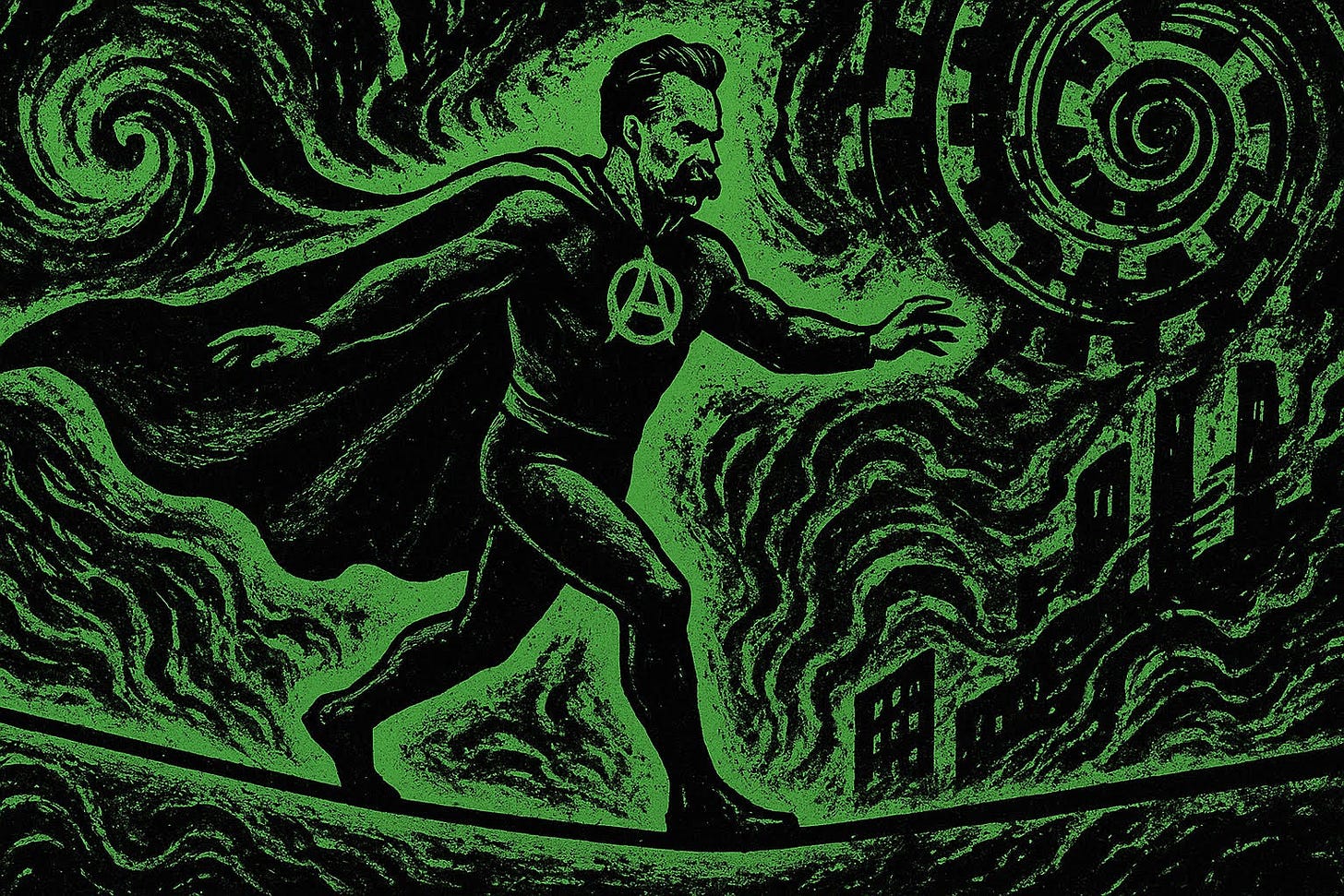An Individualist’s Guide to Enemies and Freedom
The Masks of the Herd
In a world obsessed with unity and uniformity, the greatest danger to the individual is not always obvious. The true adversaries of freedom rarely arrive in the guise of villains. Instead, they blend seamlessly into the fabric of everyday life. They are the champions of “safety,” the advocates for “community,” the well-meaning architects of collective happiness. Their power lies in their subtlety, and their greatest weapon is the morality of the majority.
The Hidden Threat of the “Good Citizen/Neighbor”
Most people imagine their enemies as overtly hostile, but for the radical individualist, the real threat is far more insidious. It is the person who insists that you “do your part,” who believes that your life must serve a purpose defined by others. It is the one who claims that your refusal to conform is dangerous, selfish, or even evil. They do not need to steal your possessions or threaten your life directly: it is enough for them to demand your submission to the collective will.
Nietzsche saw this clearly. He recognized that the greatest threat to the flourishing of the individual is not the tyrant, but the neighbor who insists on sameness. This is the morality of the herd: a system that rewards obedience, punishes difference, and calls it virtue.
Herd Morality: The Enemy in Disguise
The herd does not see itself as oppressive. On the contrary, it believes it is saving you, from yourself, from chaos, from the loneliness of true freedom. But in reality, the herd is terrified of the individual who stands apart, who refuses to be absorbed. The individual is a living reminder that another way is possible, that life can be more than comfort and conformity.
Nietzsche described two types within the herd: those who have abandoned all ambition for greatness and are content to drift through life (the Last Men), and those who resent the free spirit and wish to drag them down (the Slaves). Both are united by a suspicion of anyone who dares to live by their own values.
The Art of Recognition
How, then, does one recognize these enemies of liberty? It is not by their appearance or their words, but by their actions and expectations. Do they encourage you to question, to create, to risk? Or do they urge you to play it safe, to fit in, to sacrifice your individuality for the sake of the group? The answer reveals their allegiance.
The transcendental individualist does not waste time hunting for enemies in the shadows. Instead, they cultivate an inner clarity, a sense of self so strong that it becomes its own protection. They recognize that the world will always be full of those who fear freedom, and that the price of true autonomy is perpetual vigilance.
Becoming Your Own Standard
Nietzsche’s wisdom is that happiness is not found in comfort or security, but in the pursuit of a life that is uniquely your own. The individualist does not ask permission to exist: they do not seek approval from the herd. They create their own path, even if it means walking alone.
The herd will always try to convince you that your difference is a threat. They will call you arrogant, dangerous, even mad. They will even claim your resistance to their attempts to control you, ironically, makes you “weak”. But the truth is that the world needs more individuals who are willing to stand apart, to challenge the consensus, to live with courage and creativity.
The Joy of Standing Alone
To live as a transcendental individualist is to embrace the risk of being misunderstood, of being opposed, even of being hated. But it is also to experience a joy that the herd can never know: the joy of self-mastery, of authentic creation, of genuine freedom.
So, do not fear the hidden enemies. Recognize them for what they are: the defenders of mediocrity, the jailers of the spirit. And then, with Nietzschean laughter, walk your own path undaunted and unafraid.



